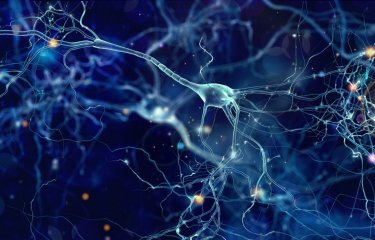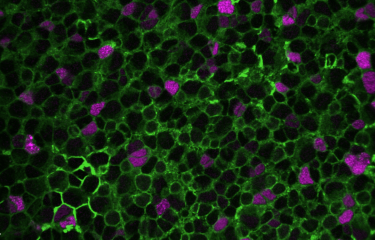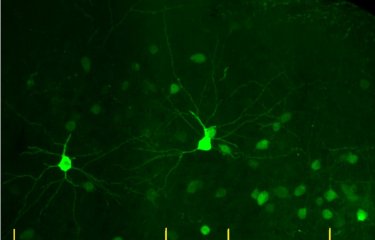Interactions between the gut microbiota and its host regulate many metabolic processes. Researchers have been able to identify these interactions, paving the way for new therapeutic approaches.
Our intestine contains hundreds of billions of bacteria: this is the gut microbiota. Ilya Mechnikov had proposed that an imbalance between the different bacterial populations that make up this microbiota could have consequences for our health and may even affect life expectancy. The links between microbiota and human health have been confirmed over the last 15 years by high-throughput sequencing and analysis of human microbiota. However, the molecular interactions between bacteria and host remain poorly understood.
The bacterial cell wall contains a molecule called peptidoglycan. In animals such as humans, this molecule can be recognized by two receptors called NOD1 and NOD2. "These interactions play a central role in the dialog with the host's immune system, and in its maturation. Mutations in these proteins are also associated with chronic inflammatory diseases such as asthma or Crohn’s disease," explains Gérard Eberl, Head of the Institut Pasteur's Microenvironment and Immunity Unit. More recently, such mutations have been associated with neurological conditions such as bipolar disorder, suggesting that peptidoglycans may exert an influence beyond the digestive system.
In 2022, the research groups of Gérard Eberl, Ivo Gomperts Boneca and Pierre-Marie Lledo showed that fragments of peptidoglycan from the intestine reach the brain and act on the hypothalamus. In a new study published on January 20, 2023 in the journal PNAS, the research teams of Ivo Gomperts Boneca and Marc Lecuit described this phenomenon: "As it is absorbed in the intestine, peptidoglycan is enclosed in a membrane vesicle. In this way, it can reach target organs such as the brain without being degraded in the meantime," explains Ivo Gomperts Boneca, Head of the Institut Pasteur's Biology and Genetics of the Bacterial Cell Wall Unit, and co-author of the study.
This discovery paves the way for new research into the ability of the gut microbiota to regulate functions beyond the digestive system. "Increasing the amount of circulating peptidoglycan may reduce appetite, while decreasing it may reduce the inflammation that causes arthritis. But these are just examples," says Pierre-Marie Lledo, Head of the Institut Pasteur's Perception and Memory Unit.
This study is part of the priority scientific area Brain connectivity and neurodegenerative diseases of the Institut Pasteur's strategic plan for 2019-2023.
Source
Microbiota-induced active translocation of peptidoglycan across the intestinal barrier dictates its within-host dissemination. PNAS, January 20, 2023
Richard Wheelera, Paulo André Dias Bastosa , Olivier Dissonb, Aline Riffleta , Ilana Gabanyic,d, Julia Spielbauera, Marion Bérarde, Marc Lecuitb,f,g , and Ivo Gomperts Bonecaa
aInstitut Pasteur, Université Paris Cité, CNRS Unité Mixe de Recherche 6047, INSERM U1306, Unité de Biologie et génétique de la paroi bactérienne F-75015, Paris, France
bInstitut Pasteur, Université Paris Cité, INSERM U1117, Biology of infection unit F-75015, Paris, France
cInstitut Pasteur, Université Paris Cité, CNRS Unité Mixe de Recherche 3571, Perception and Memory Unit F-75015, Paris, France
dInstitut Pasteur, Université Paris Cité, INSERM U1224, Microenvironment and Immunity Unit F-75015, Paris, France
eInstitut Pasteur, Université Paris Cité, Direction de la Technologie, Animalerie Centrale, Centre de Gnotobiologie 75724, Paris, France
fInstitut Pasteur, National Reference Centre and World Health Organization Collaborating Centre Listeria, Paris F-75015, France
gNecker-Enfants Malades University Hospital, Division of Infectious Diseases and Tropical Medicine, Assistance Publique–Hôpitaux de Paris, Institut Imagine F-75006, Paris, France





